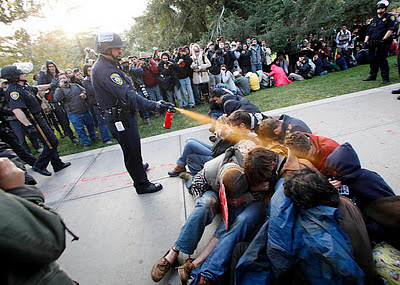 As I complete the United States' naturalization process, current events keep colliding with the very foundations of American history and democracy -- blurring the vision and discourse.
As I complete the United States' naturalization process, current events keep colliding with the very foundations of American history and democracy -- blurring the vision and discourse.In its excellent Quick Civic Lessons for the Naturalization Test and Citizen's Almanac booklets, both distributed free to aspiring citizens, the USCIS defines what America stands for, what its values are, and what it means to become a U.S. citizen -- stressing the importance of free speech, free assembly, and citizens' participation in their democracy.
Some of the 100 Civics Test questions are particularly eloquent:
- Q2. What does the Constitution do? Official answers include: Protect the basic rights of Americans -- such as:
- Q6. What is one right or freedom from the First Amendment? Official answers include: Speech; Assembly.
- Q51. What are two rights of everyone living in the United States? Official answers include: Freedom of expression; Freedom of speech; Freedom of assembly.
- Q55. What are two ways that Americans can participate in their democracy? Official answers include: Join a civic group; Join a community group; Give an elected official an opinion on an issue; Publicly support or oppose an issue or policy.
Yet, every single day since Occupy Wall Street started a little over two months ago, the news is flush with stories of those very notions of free expression, speech and assembly being trampled on. Just two days ago, students staging a peaceful protest where hosed with pepper spray vermin-busting style -- and that's just one story among many others, as if the Arab Spring, and repression, became the blueprint.
So, what does it actually mean? Is it only a Kool-Aid aspiration? Who gets to define free speech and assembly, government of and for the people, community involvement, and representative democracy? More importantly, where does the line get drawn?
image: Wayne Tilcock/The Davis Enterprise

No comments:
Post a Comment